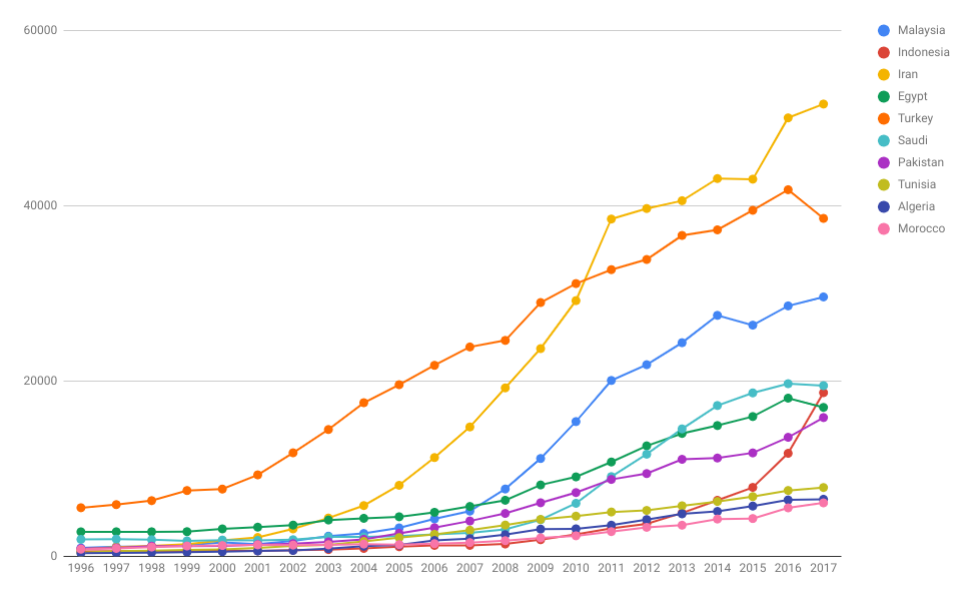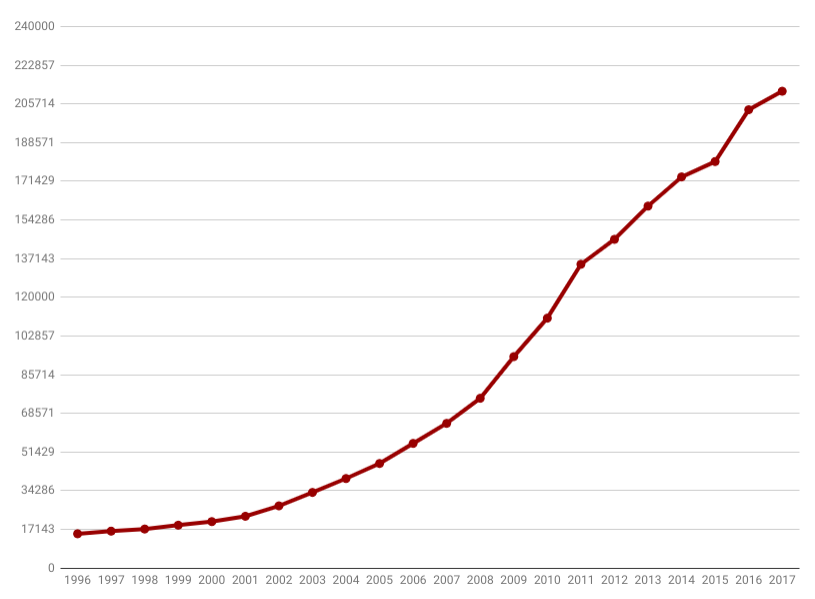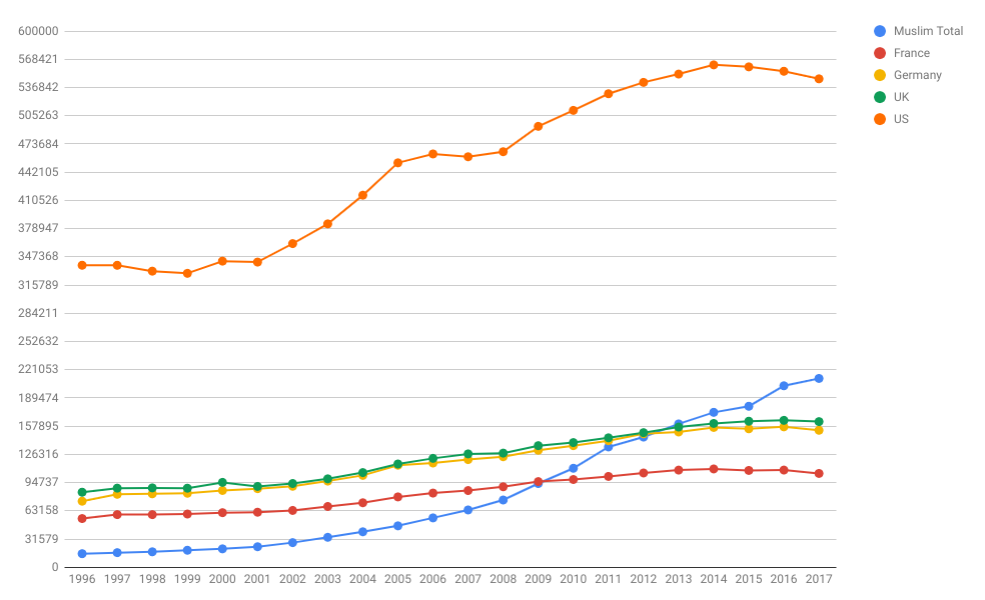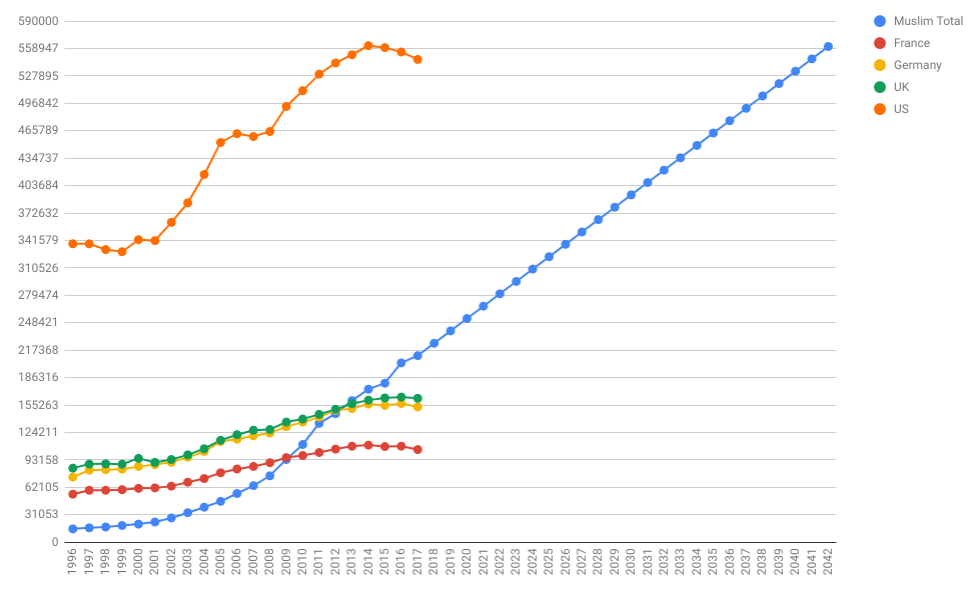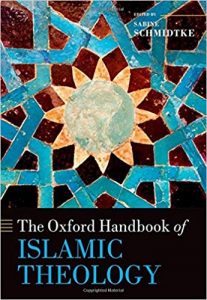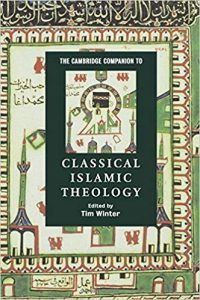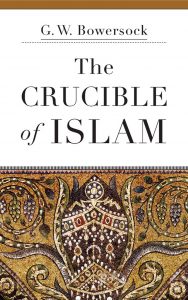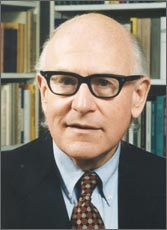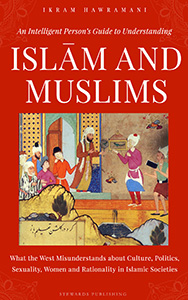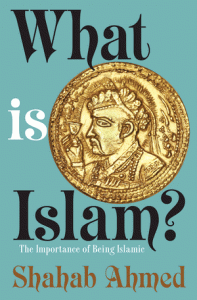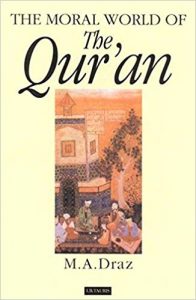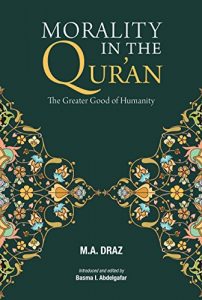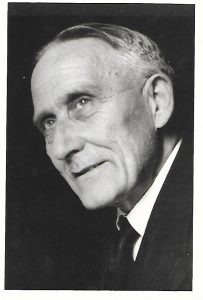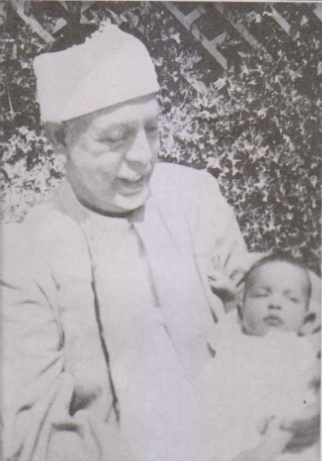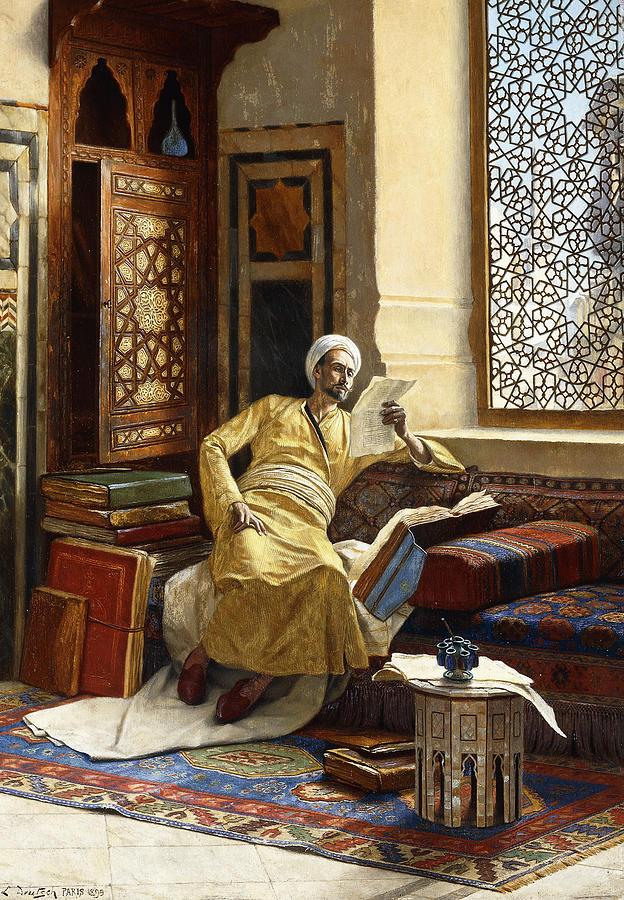There are numerous narrations that mention ruqya (the use of certain words, prayers or Quran recitations as charms or spells to heal or protect a person). I decided to to conduct a search of all major hadith collections and some minor ones to find all the hadiths that mention ruqya in order to find out just how authentic they are. I then used my own mathematical method of calculating hadith authenticity which combines probability theory with the science of hadith transmitter criticism (al-jarḥ wa-l-taʿdīl). The method (see my essay about it) is useful in judging between contradictory hadith narrations because it produces a single percentage for each hadith that reflects its chance of authenticity. We can then compare the chance of the authenticity of different hadiths to find out which one is most likely to be truly from the Prophet PBUH.
Summary
The hadith against ruqya has a 64.1% chance of authenticity, which makes it ṣaḥīḥ. The hadiths that support ruqya, however, are much lower in quality, the strongest having only a 20.78% chance of authenticity. But by combining the chance of the authenticity of all the ruqya-supporting hadiths, we reach a probability of 49.69%, which means that the crux of the meaning of the hadiths is likely to be true. It is strange, however, that the most authentic hadith in support of ruqya says that it is only to be used against the evil eye and scorpion stings.
In conclusion and considering all of the hadiths together, it appears that the Prophet PBUH forbade the use of ruqya in the pre-Islamic sense of casting a spell. But he permitted the use of the recitation of the Quran as a means of hopefully bringing about healing and protection. While some Muslims think that ruqya has an almost magical power that is guaranteed to bring about results, it is probably more correct to think of it as the same as prayer. It is merely the use of God’s words in the hope of attaining His blessings.
The traditional understanding of ruqya as casting spells is therefore highly doubtful and appears to be an importation of pre-Islamic Arab beliefs into Islam. The Prophet PBUH himself appears to have strongly disliked the spell-casting aspect of ruqya, which is why the most authentic narration speaks against it and mentions it along with other pre-Islamic practices. However, he appears to have tolerated the use of Quran recitation as a substitute for pre-Islamic forms of ruqya while allowing it to be called ruqya.
I am therefore fairly confident that we should reject the understanding of ruqya as spell-casting and instead think of it as similar to prayer and no more likely than prayer to be effective.
Technical details
The hadith against ruqya
It is interesting to note that the most authentic narration on ruqya actually says good Muslims will not use it:
Verily the Messenger of Allah (ﷺ) said: Seventy thousand men of my Ummah would enter Paradise without rendering account. They (the companions of the Holy Prophet) said: Who would be those, Messenger of Allah? He (the Holy Prophet) said: They would be those who neither practise charm (ruqya), not take omens, nor do they cauterise, but they repose their trust in their Lord.
Sahih Muslim 218 b
This hadith comes to us through three Companions (ignoring unauthentic chains). I decided to gather all of its versions from the major hadith collections to find out just how strong its chains are.
Below is a diagram of the chains coming through Ibn Abbas:
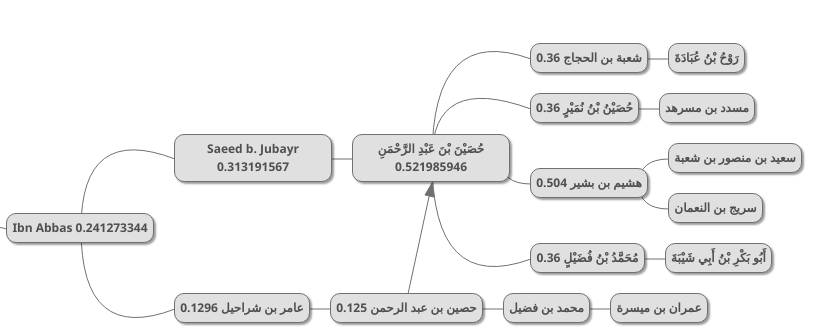
The numbers indicate probability of authenticity. Thus this chain has a 24% probability of being truly from Ibn Abbas (according to my methodology).
Below are the chains from Imran b. Husayn:
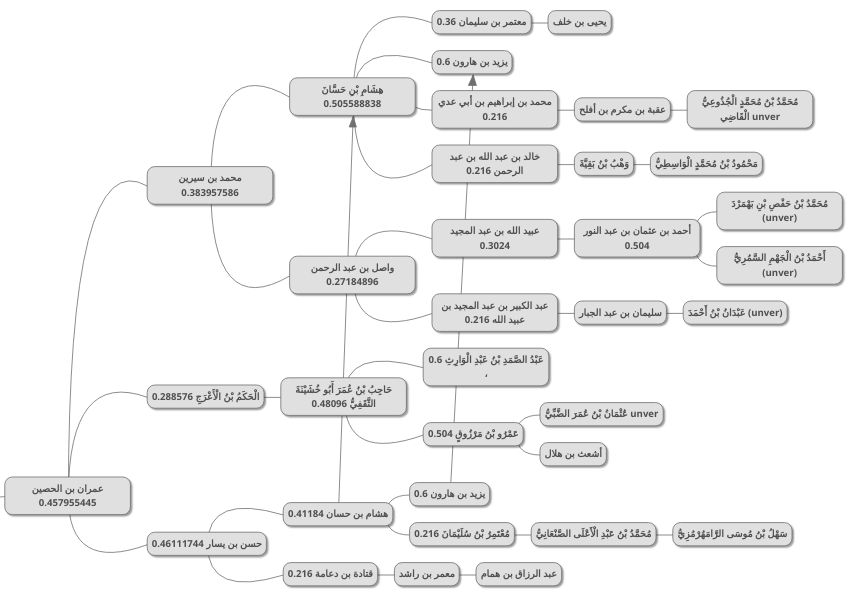
This chain is stronger and has a 45.7% probability of authenticity.

The last chain is from Ibn Masud and has a 12.85% chance of authenticity.
We use the following equation to combine all of these probabilities into one probability:
probability of authenticity = 1 - (1 - probability of authenticity of first chain) × (1 - probability of authenticity of second chain) × (1 - probability of authenticity of third chain chain) and so on.
Thus:
1-((1−0.241)×(1−0.4579)×(1−0.12855)) = 0.641438499
The result is that this hadith has a 64.1% probability of authenticity. Any hadith that has a 60% probability of authenticity or higher is ṣaḥīḥ al-ṣaḥīḥ (a degree above ṣaḥīḥ) in my methodology, so this hadith is extremely authentic.
The hadiths in favor of ruqya
Narrated Al-Aswad:
I asked `Aisha about treating poisonous stings (a snake-bite or a scorpion sting) with a Ruqya. She said, "The Prophet (ﷺ) allowed the treatment of poisonous sting with Ruqya."
Sahih al-Bukhari 5741
It was narrated that Jabir said:
Ibn Maja (authentic) Vol. 4, Book 31, Hadith 3515
“There was a family among the Ansar, called Al ‘Amr bin Hazm, who used to recite Ruqyah for the scorpion sting, but the Messenger of Allah (ﷺ) forbade Ruqyah. They came to him and said: ‘O Messenger of Allah! You have forbidden Ruqyah, but we recite Ruqyah against the scorpion’s sting.’ He said to them: ‘Recite it to me.’ So they recited it to him, and he said: ‘There is nothing wrong with this, this is confirmed.’”
The below diagram is the result of my search of all hadiths mentioning ruqya (click to enlarge it):
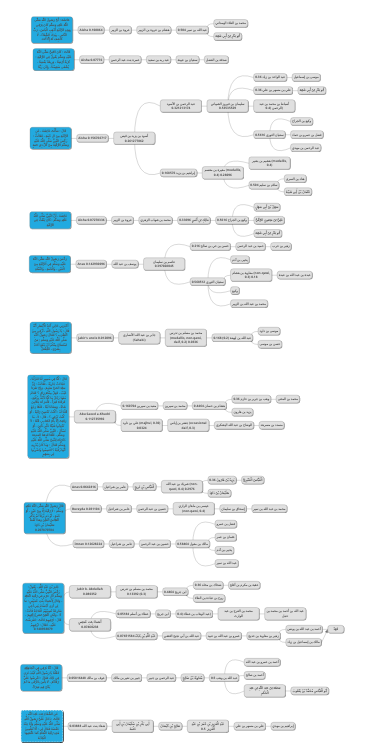
Below is a summary of the authenticity probabilities of the hadiths:
- Aisha 10.88%
- Aisha 7.77%
- Aisha 15.67%
- Aisha 7.278%
- Anas 14.29%
- Jabir’s uncle 1.2%
- Abu Saeed al-Khudri 11.27%
- Anas + Buryada + Imran 20.78%
- Jabir + Asmaa’ b. Umays 14.89%
- Awf b. Malik 5.8%
- Shifaa’ b. Abdullah 3.88%
The strongest hadith is the one coming from the Companions Anas, Burayda and Imran, and it is as follows:
The Prophet (ﷺ) said: No spell (ruqya) is to be used except for the evil eye or a scorpion sting.
Sunan Abi Dawud 3884, Ibn Maja Vol. 4, Book 31, Hadith 3513, al-Tirmidhi Vol. 4, Book 2, Hadith 2057, etc.
The hadith, however, has only a 20.78% chance of authenticity, which is far below the 64.1% authenticity of the anti-ruqya hadith mentioned at the beginning.
There is one final step we can take by combining the authenticity probabilities of all the separate pro-ruqya hadiths, as follows:
1−(1−0.1088)×(1−0.077)×(1−0.1567)×(1−0.07278)×(1−0.1429)×(1−0.012)×(1−0.1127)×(1−0.2078)×(1−0.1489)×(1−0.058)×(1−0.0388) = 0.704960078
(0.1088+0.077+0.1567+0.07278+0.1429+0.012+0.1127+0.2078+0.1489+0.058+0.0388)÷11 = 0.1033
(0.704960078+0.1033)÷2 = 0.4041
Before merging the probabilities we divide each of them by two. This reflects the fact that we are combining entirely different hadiths together. It is easier to fabricate entirely new hadiths and chains than to fabricate supporting chains for the same hadith. So the probability of all the separate hadiths being true is lower than the probability of all the chains of the same hadith being true.
So the result is that there is a 40.41% chance that the crux of the meaning of the hadiths is true. In my methodology a hadith that reaches 30% or higher is ṣaḥīḥ. So the combined meaning of the hadiths together can be considered authentic.
